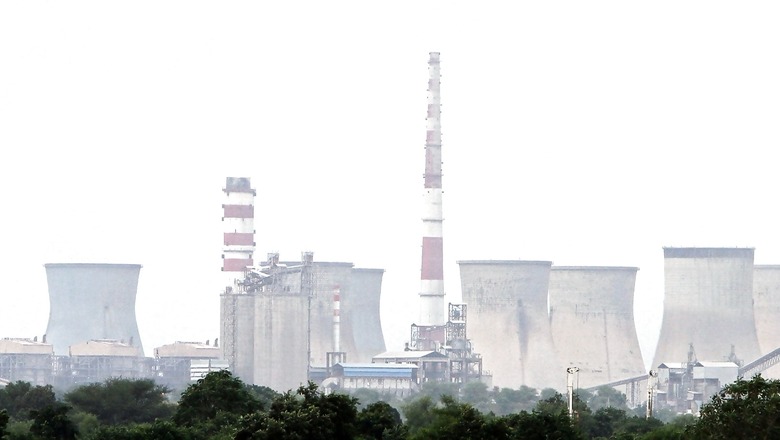
views
The national capital region (NCR) is all set to completely ban the use of coal as a fuel starting January 2023. Any industrial units violating the ban could face immediate closures, warned the Commission for Air Quality Management in NCR and Adjoining Areas (CAQM) on Wednesday.
The orders, however, exempt thermal power plants which are major emitters of pollution, and would still be permitted to use low-sulphur coal.
Detailing its action plan, CAQM has asked all industries to switch to clean fuels, if they have not done so already. Starting January, only fuels from the standard list of approved fuels would be allowed to be used across NCR. The flying squad of the CAQM would conduct random checks across the region to ensure the directions are adhered to.
Any violation or non-compliance would invite stringent action. “Use of unapproved fuels will straight away lead to closure along with imposition of heavy Environmental Compensation (EC),” it warned on Wednesday, adding that shifting of industries to PNG/cleaner fuels remains a high priority area for the commission.
What’s the plan?
The decision is part of CAQM’s plan to phase out coal from various industrial, commercial, and other miscellaneous applications to improve the air quality in Delhi, which remains one of the most polluted cities of the world. A recent analysis by the University of Chicago showed how toxic air is shortening lives by almost 10 years in Delhi where the average annual PM2.5 levels exceed 107 µg/m3, more than 21 times the WHO guidelines.
According to CAQM, nearly 1.7 million tonnes of coal is used annually in industries in the NCR. Regions in Delhi where infrastructure and supply of piped natural gas (PNG) are already available were asked to phase out coal on a priority basis.
Last year, the agency had asked the neighbouring states of Haryana, Uttar Pradesh and Rajasthan to develop a comprehensive action plan to switch all industrial units to cleaner fuels ahead of the ban. Till August 2021, only 1,693 of the total 4,178 industrial units in the national capital region of the three states had shifted to gas, they have informed.
The statutory directions aim at complete elimination of coal and other unapproved fuels for any of the operations/ applications across all sectors. In June, CAQM had also issued statutory directions regarding fuels which have been approved for use for industrial or domestic purposes.
Which fuel can be used?
The orders allow use of petrol (BS VI with 10 ppm sulphur) and diesel (BS VI with 10 ppm sulphur), along with natural gas (CNG/PNG/LNG). It has also permitted the use of hydrogen/methane for vehicular and industrial purposes. Liquefied petroleum gas (LPG) /propane/butane, aviation turbine fuel, biofuels (bio-alcohols, bio-diesel, bio-gas, CBG, bio-CNG) are among other approved fuels, along with refuse-derived fuel (RDF) for power plants, cement plants, waste-to-energy plants.
There is also no restriction on firewood/ biomass briquettes, wood/bamboo charcoal for tandoors and grills of hotels/restaurants/banquet halls, but they will need to set up adequate emission channelisation and control systems.
The ban, if implemented in all its spirit, could help in improving the air quality over the capital where people continue to face health problems due to the dangerous pollution levels all through the year, say experts.
Read all the Latest India News here

















Comments
0 comment